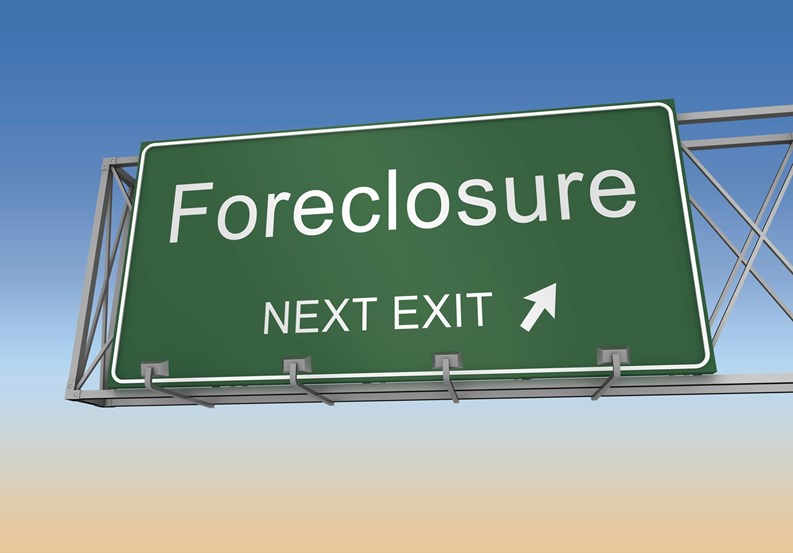The first of the month rolls around and it’s time to pay the bills that keep your building operational. Repairs might need to be made, staff salaries paid, maintenance done to keep all the common elements running, and supplies reordered. The consistent influx of funds from residents' monthly fees is what makes all of this possible, and keeps a building or HOA functional and solvent from month to month. But sometimes—not often, but sometimes—residents don't hold up their end of the condo-living contract, and fall into arrears.
Reasons for Nonpayment
“Generally speaking, I would say that [people unable to pay dues] fall into one of two broad categories,” says James A. Erwin, a founding partner at Erwin Law in Chicago. “And those are either just financial distress—‘I just can't afford it'—or they feel the association owes them money for something, such as claims of damages of some sort, and so they're not paying as an offset.”
Mark R. Rosenbaum, a principal with the law firm of Fischel & Khan, Ltd. in Chicago, notes that, “For a while, it was unemployment—people had lost their jobs. I'm seeing that a little less. But I have to tell you, most often people don't tell me why they're not paying. They just don't pay.”
A lot of these excuses are not really seen as valid reasons for not paying monthly dues. According to Nicholas P. Bartzen, an associate attorney with the law firm of Levenfeld Pearlstein, LLC in Chicago, “Reasonable mistakes (i.e. bank transfer glitches and misaddressed checks) occur frequently and can be easily resolved. It’s those instances when owners are actually unable to pay but continual reliance on these ‘reasonable mistake’ excuses eventually delegitimizes them. On the other hand, the ‘association failed to maintain XYZ’ are common but are not considered by Illinois courts to be germane to the issue of collections. If a unit owner has legitimate issues with the board’s operation, the owner’s recourse does not include withholding assessment payments.”
While there are very few legal reasons a resident can use as an excuse as to why they did not pay their monthly dues, the board doesn’t have to begin collections right away.
“We recommend to our clients that the board give owners 60 days before sending the account to us to initiate collections actions. There is no grace period, as the Illinois Condominium Property Act prohibits a board from allowing a unit owner to forbear payment of assessments. Waiting any longer puts the association at risk of cash flow issues. Moreover, frequently owners who fail to pay assessments also fail to pay their mortgage, which can lead to the bank initiating foreclosure action against the owner. If the association has failed to promptly initiate collections, it may find that it has minimized its chances to recover unpaid assessments,” says Bartzen.
“I generally tell people, if they owe less than $1,000, that's a little light to pursue them,” says Rosenbaum, “The association gets an award of attorney's fees if they get a judgment for collection enforceable. And even if it's not enforceable, typically the declaration says the association is entitled to its attorney's fees and court costs. And usually the courts will award all or nearly all of the attorney's fees that are requested, but you're still at the mercy of the judge. And if you're suing over $500, let's say, sometimes the judge will say, he won't say this out loud, but the judge will say, ‘That's too small to be bothering me with and all this stuff. I'm not going give you $1,000 of fees on a $500 amount.’”
There is also the option of creating a payment plan for the resident in question, the trick is to make sure that it’s actually a feasible plan that could succeed. Erwin explains, “If they really feel that it's a legitimate effort to catch up and it just, real bad spot for this owner, and then they can enter into a payment plan to allow them to pay it off over time. But that's all the more reason why I say associations should act quickly when they notice this. Because the longer it goes, the harder it is for an owner, even a well-intentioned one to catch up. And the more, as attorneys especially, we're going to say no to it. So, if both sides are acting conscientiously, then yeah, most times, I think what you're looking at is simply a payment plan.”
“While condominiums are much more common in Illinois than co-ops, and while the ownership and operation of each are different in certain fundamental ways, the consequences of multiple delinquencies in either form of ownership are similar. The board of a condominium association and a co-op relies on common expense payments from owners to maintain the common elements. If money isn’t coming in, the board won’t be able to pay the bills for upkeep, staff and all other necessary costs,” says Bartzen.
When Being Nice Fails
If a payment plan fails and there’s no hope that the resident can pay their dues, it becomes time for the lawyers to take legal action.
“They could act either by foreclosure, which is not common or at least here in Illinois, because we have the right to seek possession of the unit, not ownership under the Forcible Entry and Detainer Act. So what happens there is, the association sues under that, sues for possession, gets a judgement for possession, doesn't take ownership, it doesn't affect the lenders rights in the sense that the lender still has all mortgagees' rights, but the association can then evict the owner if the owner is living there, or evict a tenant, or instead of evicting a lot of times, if the tenant is actually paying, just collect the rent directly from the tenant until such time that the debt is satisfied,” says Erwin.
“There are a couple of advantages to the forcible entry process. One is it's quick in Illinois, relatively quick in Illinois. It is intended to be an expedited procedure with relatively few defenses and you get a judgment for possession of the unit. Not titled, this in an important distinction. You don't get a judgment for title, you get a judgment for possession. Which is typically stayed for at least 60 days, but it could be stayed for longer. And you get a money judgment for the amount that you ask for in the complaint, which is typically through a certain date, assessment through a certain date,” says Rosenbaum.
Of course there are laws that associations need to be warry of when their lawyers begin with collecting these debts. As Bartzen notes, “The Fair Debt Collection Practices Act (FDCPA) is a federal law that protects debtors from illicit and unfair debt collection efforts. The FDCPA comes into play for associations and co-ops immediately in the collection process, as the first step in a collection effort is drafting and sending a notice. The notice must contain certain language in order to avoid violating the FDCPA. The inclusion of the proper language to avoid risk of an FDCPA violation is one of the many reasons why associations and co-ops are best served by having an attorney handle collections.”
Bartzen also notes that it doesn’t matter if a resident is up on their mortgage payments if they haven’t been paying their dues, “The right to evict an owner for unpaid assessments in Illinois belongs to the association regardless of whether the owner is current with his or her mortgage payments; the agreement that mandates the owner pay assessments to the association is separate and distinct from that which governs the owner’s mortgage. In many cases, if the association obtains possession of the unit for unpaid assessments through a forcible entry action, it is to the association’s advantage that the owner is current on mortgage payments as it leaves more time for the association to lease the unit. The foreclosure process, once it comes to an end, can stymie the association’s efforts to rent out the unit it legally possesses, which is often the best way to recoup unpaid assessments on an account. Accordingly, it’s in the association’s interest to get possession as quickly as possible if a foreclosure is pending, to ensure that it takes in any and all rental proceeds possible.”
Taking Control of the Unit
As mentioned earlier, using the Forcible Entry and Detainer Act is the most common way for a building to take back control of a unit from a delinquent owner due to its speed and how easy it is to use. What’s allowed under the forcible entry act doesn’t just stop there; it’s also a good way of getting the money owed.
“The association’s best option is to obtain possession of the unit via the forcible entry proceeding and then start collecting the rent to pay down the owner’s balance. If the owner already has a tenant in the unit when the association gets possession, that’s even more convenient, as that rent can be assigned to the association. If the unit requires maintenance to get it rental-ready, those repairs can be added to the unit owner’s balance and paid down with rental income, but the association must bear in mind that the period of time that it may have to rent out the unit is finite,” says Bartzen.
“Now the possession order is important because if the owner is in the unit, at the end of the 60 days, I can go to the sheriff and have the sheriff literally evict the owner. And then turn around and rent the unit out and use the rental to bring the assessments current. The monthly rent is usually a couple of times the monthly assessment. Usually two to three times the monthly assessment. So for every month of rent we get that catches them up two or three, maybe two or sometimes three months at a time,” says Rosenbaum, “it's amazing how unit owners will come up with the funds when the sheriff is knocking at their door to get them out.”
So by using the forcible entry process, the building is not only able to take control of the unit but they are able to rent it out and make back all the money that the delinquent resident owed in a much quicker timeframe. By doing this the building is quickly able to right their finances and get everything back in ship shape.
While building are still able to foreclose normally if they so choose, Erwin notes, “the reason it's not used very much, A), the alternative, which is the Forcible Entry and Detainer Act and suing for possession is so much simpler. And B) you very often have a mortgagee that comes ahead of you, because the lender comes ahead of you and you're not going to be able to get ahead of them in line so to speak. Once you move for foreclosure they're going to move for foreclosure and knock you out.”
So foregoing foreclosure is not only a good way to make the money back, but it also makes sure that the building is able to recover the money owed. The forcible entry process, as noted earlier is much faster. The accelerated process means that “when we get an order of possession, typically judges here at least locally in Cook County will stay it for usually period of 30 sometimes 60 days, it gives the owner or the occupant time to get out. We serve them with notice of the judgment but we can't enforce it, then once the enforcement date passes, once we can enforce it, it's turned over to the sheriff. The sheriff then processes it like any other eviction in landlord-tenant situation, and usually within about two weeks or so, goes out to the property and removes the occupant or owner from the premises and that's that,” says Erwin.
“When you're going via the Forcible Entry and Detainer Act of Possession route,” says Erwin, “usually we say 30 days for the notice and then if they don't pay then, from the time of filing the complaint to the time that we get an order of possession it's usually about 90 days is pretty much the average. So you're looking at 90 to 120 days total.”
No matter what process you take though, it’s a long process from collections through foreclosure (forcible or otherwise) to eviction. “There are too many variables at play,” says Bartzen, “with each individual process (both foreclosures and evictions) to accurately estimate.
“For evictions,” he says, “the process depends greatly on variables such as: the number of attempts required to properly serve the owner, whether the owner appears at the hearings or allows the process to go uncontested, whether the owner’s attorney files a jury demand, whether there were settlement discussions that broke down, or the particular time of year when the eviction is placed with the sheriff (Illinois weather and the holiday season plays a factor). Foreclosures have their own extensive list of variables. For an eviction, 5-8 months is average for condominium associations (that’s the first demand letter all the way to the sheriff coming out to evict). Foreclosures can easily exceed one year, start-to-finish.”
John Zurz is a staff writer for The Chicagoland Cooperator and other publications.







Leave a Comment